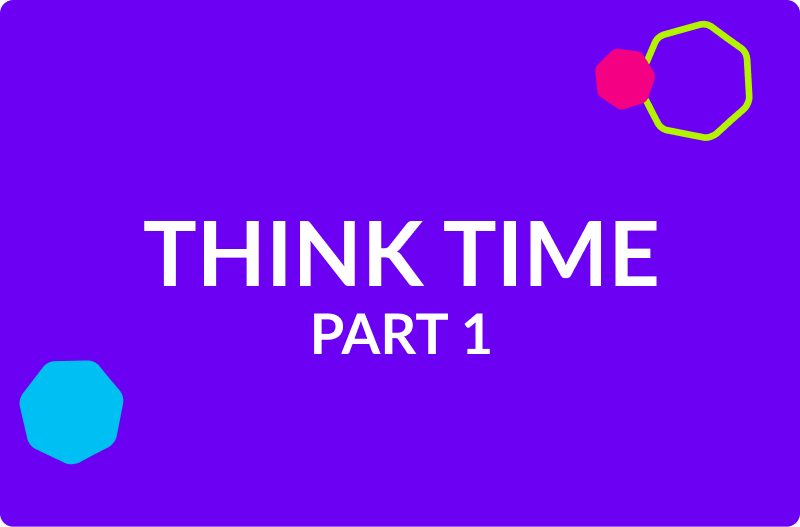
Think Time (Part 1)
I don’t even have to ask the rhetorical question, “Do you get enough think time?” We both know the answer. No! None of us does and we are the poorer because of it. The discipline of time set aside to think, to muse, to ideate is a thing of the past. Instead, we fill our minutes with emails, podcasts, IM, Slack, Facebook, texting, music, multi-tasking, and so on
The results of this “thinkless life” are things like…
- ending the day with no sense of accomplishment
- wondering why we work so hard
- burnout
- depression
- shallow solutions
- dearth of new ideas
- a sense of futility
- never “arriving” or finishing
Yet, we were made to think. In our heads, we carry around the greatest thinking machine of all time. Despite amazing progress in the field of AI, the brain will never be surpassed in its overall ability to cogitate, to create, to solve. So, why don’t we use it? Because thinking is hard work.
In future posts, I want to lay out some simple disciplines to help you regain the ability and discipline to think well. For today, I just want to focus on why thinking is so important.
- it is part of what you were made to do, a part of the uniqueness of being human
- it puts things back into perspective, something we need regularly
- it leads to creativity and innovation
- it relieves stress vs all the things we do to cover it up
- it deepens your quality of life
- it restores meaning to the plethora of activities in which you engage
- it provides time to consider what to stop doing
- it is the essence of learning as opposed to merely accumulating data
I could go on but I believe you get the point. If you’re interested in restoring your ability to think, stay tuned!
